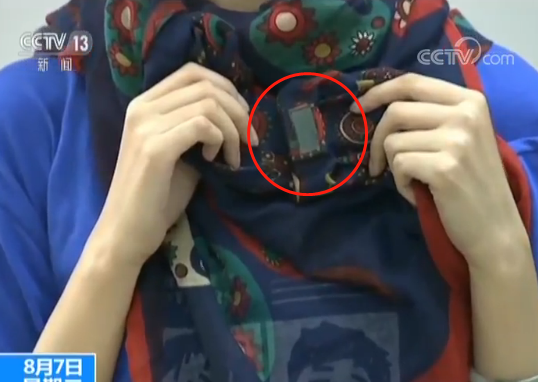Six men who orchestrated an elaborate cheating scheme with more than 30 students in a Beijing public exam were handed jail terms of between 20 months and four years by a court in China on Tuesday (August 7).
They were also fined between 10,000 (S$1,995) to 40,000 yuan (S$7,994) each, for what the court said to be Beijing's largest coordinated cheating case in recent years.
An elaborately-planned operation
The police arrested the six on Christmas Eve 2016, the day they assisted 33 students with cheating in the 2017 Unified National Graduate Entrance Examination.
The exam is taken by graduate students at the end of 2016 for further studies in the academic year starting 2017.
Three of the men, Zhang Wuya, Li Qian and Zhang Feng, rented rooms in hotels and buildings near three university campuses across Beijing, where they transmitted answers to the students doing their exams, the Haidian District People's Court heard.
Zhang Wuya also developed a wireless radio transmitter that sent answers to the students in the examination hall, and supervised Li Qian and Zhang Feng in operating the transmitting computer and software.
Two others, Lü Shilong and Zhang Xiayang, were themselves in the examination halls, receiving the transmitted answers from afar. The cheating students used a variety of devices, including receivers hidden in erasers, silk scarves and miniature earphones. According to CCTV News, a tiny LCD screen was embedded in each eraser and scarf.
[related_story]
 LCD screens installed into two erasers.
LCD screens installed into two erasers.
 An LCD screen attached to a silk scarf. Images via CCTV News.
An LCD screen attached to a silk scarf. Images via CCTV News.
The sixth man, Zhang Zongqun, was not personally involved in the cheating on the day of the exam, but he distributed the cheating devices to the exam candidates and recruited students to participate in their scheme.
Training, mock exams and device testing done prior to day
In sentencing the six men, the court noted how elaborate the entire scheme was, which included advance training, mock exams and multiple tests on the cheating devices.
Zhang Wuya, Lü Shilong and Zhang Zongqun were so invested in the scheme, the judge noted, that they had set up "education technology" and education consultation companies, seemingly to disguise their cheating scheme.
Under their companies, the men created contracts titled "MBA and MPA Graduates (Unified Recruitment) Training Agreement" and "Education Training Collaboration Agreement", which were used to recruit students to the scheme.
CCTV News also reported that the students involved paid as much as 45,000 yuan (S$8,980) to get their answers transmitted to them.
The judge also said:
"The defendants broke through the signal blocking technology at the examination halls through the Internet and wireless communication...
The cheating... severely disrupted the ordinary process of the examination. It poses grievous harm to society. The facts are thus 'serious'."
The six men were convicted under Article 284-1 of China’s Criminal Law, which outlaws organised cheating in state examinations and using cheating equipment.
Organised cheating was only made a crime in 2015 amid the increasing number of scandals involve academic dishonesty. It is punishable for up to seven years in prison.
Top image by Zhou Yuhang via Haidian District People's Court
If you like what you read, follow us on Facebook, Instagram, Twitter and Telegram to get the latest updates.
